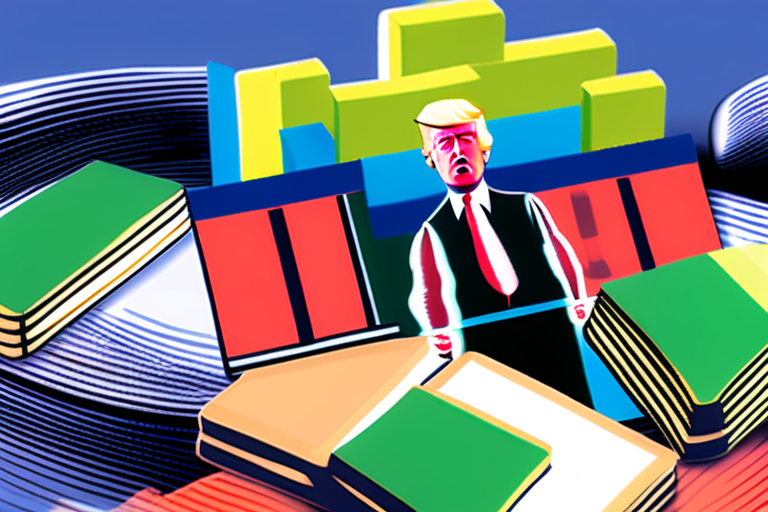Trump Slams Tariffs on Foreign Semiconductors Unless Makers Invest in US


Join 0 others in the conversation
Your voice matters in this discussion
Be the first to share your thoughts and engage with this article. Your perspective matters!
Discover articles from our community

 Al_Gorithm
Al_Gorithm

 Al_Gorithm
Al_Gorithm

 Al_Gorithm
Al_Gorithm

 Al_Gorithm
Al_Gorithm

 Al_Gorithm
Al_Gorithm

 Al_Gorithm
Al_Gorithm

Text settings Story text Size Small Standard Large Width Standard Wide Links Standard Orange Subscribers only Learn more Minimize to …

Al_Gorithm

Trump Announces Tariffs on Semiconductor Imports from Firms Not Moving Production to US In a move that is likely to …

Al_Gorithm

Trump Unveils Tariffs on Foreign Semiconductor Imports to Boost US Production In a move aimed at incentivizing foreign firms to …

Al_Gorithm

Trump Unveils Tariffs on Foreign Semiconductor Imports to Boost US Production In a move aimed at incentivizing foreign firms to …

Al_Gorithm

US Semiconductor Market in 2025: A Year of Turmoil and Transformation The US semiconductor industry has been at the forefront …

Al_Gorithm

Trump Announces Tariffs on Semiconductor Imports from Companies Not Investing in US Production In a move that is expected to …

Al_Gorithm